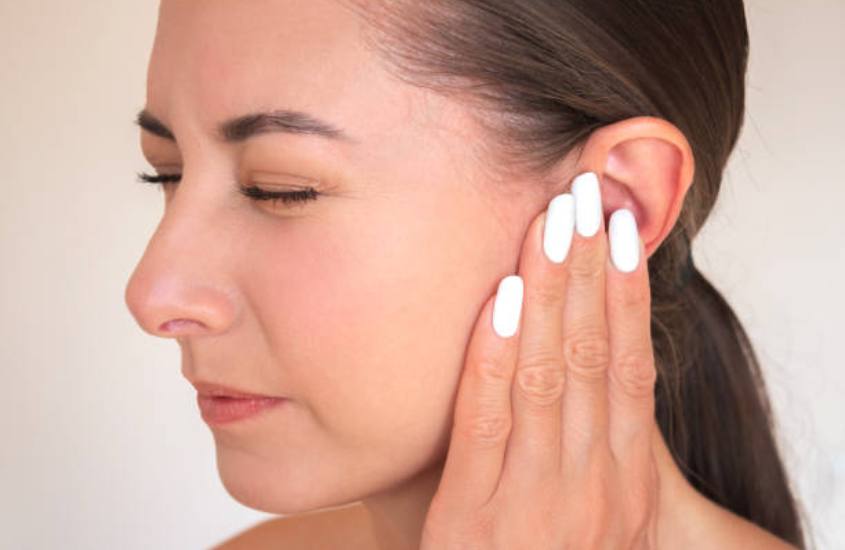Tinnitus, a persistent ringing or buzzing in the ears, affects millions worldwide, with no external sound present. It varies in intensity and pitch, impacting individuals’ quality of life significantly.
Its mechanisms are complex, involving auditory and non-auditory pathways, associated with hearing loss, aging, loud noise exposure, or health conditions. Manifestations differ, from intermittent episodes to constant noise, necessitating ongoing research for improved diagnosis and treatment.
Exploring the Role of ICD10 in Medical Coding
In the realm of medical coding, understanding the role of ICD10 is paramount. Especially when it comes to documenting conditions like Tinnitus ICD10. This coding system, the International Classification of Diseases, 10th edition, serves as a standardized method for classifying and coding diagnoses encountered in healthcare settings. Healthcare professionals utilize ICD10 codes to accurately document patient conditions, facilitating communication among providers, insurers, and researchers.
When it comes to tinnitus, ICD10 plays a crucial role in accurately capturing and categorizing this auditory condition. The specific code for tinnitus in ICD10, known as Tinnitus ICD10, enables healthcare providers to document and classify tinnitus diagnoses effectively. This code, H93.1, ensures consistency and clarity in medical records, aiding in billing, statistical analysis, and research efforts. By understanding the role of ICD10 in medical coding, healthcare professionals can ensure accurate documentation of tinnitus diagnoses, ultimately improving patient care and advancing our understanding of this prevalent condition.
Tinnitus Causes and Risk Factors: What You Need to Know
Understanding the causes and risk factors of tinnitus is essential for effective management and treatment. Exposure to loud noise, such as concerts or heavy machinery, is a common cause of tinnitus. Additionally, age-related hearing loss and ear injuries can contribute to the development of this condition. Other factors, including certain medications like antibiotics or antidepressants, and underlying health conditions such as cardiovascular diseases or ear infections, may also play a role in tinnitus onset. It’s important to recognize these potential triggers and take proactive steps to minimize their impact on auditory health. Furthermore, healthcare professionals utilize Tinnitus ICD10 coding to accurately document and classify tinnitus diagnoses, facilitating comprehensive patient care and research efforts.
Furthermore, lifestyle factors such as smoking, excessive alcohol consumption, and high caffeine intake can increase the risk of developing tinnitus. Stress and anxiety may exacerbate tinnitus symptoms, highlighting the importance of stress management techniques in overall tinnitus management. By understanding these causes and risk factors, individuals can make informed decisions to protect their hearing health and reduce the likelihood of experiencing tinnitus. Additionally, healthcare providers can use this knowledge to tailor treatment plans and interventions to address the specific needs of each patient, ultimately improving outcomes and quality of life for those living with tinnitus.

Diagnostic Process for Tinnitus: Steps and Considerations
The diagnostic process for tinnitus involves several steps and considerations to accurately assess the condition and determine appropriate treatment. Firstly, a healthcare professional will conduct a comprehensive medical history review, asking about symptoms, duration, and potential triggers. They will inquire about any underlying health conditions, medications, or recent exposure to loud noises, as these factors can contribute to tinnitus onset or exacerbation.
Next, a physical examination will be performed to assess ear health and auditory function. This may include a visual inspection of the ears, evaluation of hearing sensitivity through a series of tests, and assessment of cranial nerve function. Additionally, specialized tests such as audiometry, tympanometry, and imaging studies may be ordered to further evaluate the auditory system and rule out other potential causes of tinnitus. Throughout the diagnostic process, healthcare providers will consider the individual’s unique circumstances and tailor their approach accordingly, ensuring a thorough evaluation and accurate diagnosis. By following these steps and considering various factors, healthcare professionals can effectively diagnose tinnitus and develop a personalized treatment plan to address the individual’s needs and improve their quality of life.
Treatment Options for Managing Tinnitus Symptoms
Several treatment options exist for managing tinnitus symptoms. One approach involves cognitive behavioral therapy (CBT), which helps individuals reframe their thoughts and reactions to tinnitus. Sound therapy, another option, utilizes external noises to mask or distract from the ringing sensation. Medications such as antidepressants or anti-anxiety drugs may also be prescribed to alleviate associated stress or depression. Additionally, hearing aids can improve overall hearing and reduce the perception of tinnitus. In severe cases, transcranial magnetic stimulation (TMS) or cognitive therapy may be recommended to modulate brain activity and reduce tinnitus perception. Surgical interventions, though rare, may be considered for specific cases, such as when tinnitus is caused by a physical abnormality in the ear.
Another avenue for managing tinnitus is lifestyle adjustments. These may include reducing exposure to loud noises, managing stress through relaxation techniques, and maintaining a healthy sleep schedule. Avoiding stimulants like caffeine and nicotine can also help minimize tinnitus symptoms. Furthermore, incorporating regular exercise into one’s routine can improve overall well-being and potentially alleviate tinnitus distress. It’s essential for individuals experiencing tinnitus to consult with a healthcare professional to determine the most suitable treatment plan tailored to their specific needs and circumstances.
Lifestyle Changes and Coping Strategies for Tinnitus
Tinnitus, a persistent ringing or buzzing in the ears, can significantly impact daily life. Lifestyle changes can alleviate symptoms. Regular exercise promotes overall well-being, reducing stress levels and potentially diminishing tinnitus intensity. A balanced diet rich in antioxidants supports auditory health, while minimizing caffeine and alcohol intake may help manage symptoms.
Incorporating relaxation techniques such as yoga or meditation can alleviate stress, a common exacerbating factor for tinnitus. Creating a calming environment with white noise or soothing music can distract from tinnitus sounds. Additionally, seeking support from friends, family, or support groups can provide emotional relief and coping strategies for better managing the condition.
Support and Resources for Individuals Living with Tinnitus
Individuals living with tinnitus can access various forms of support and resources to manage their condition effectively. Support groups, both online and in-person, offer platforms for sharing experiences and coping strategies, fostering a sense of community among sufferers. Additionally, counseling services provide personalized guidance and emotional support to help individuals navigate the challenges associated with tinnitus.
Furthermore, numerous educational resources are available to empower individuals with information about tinnitus management techniques and treatment options. These resources may include informative websites, literature, and seminars, offering valuable insights into understanding and coping with the condition. Moreover, healthcare professionals specializing in audiology or otolaryngology can offer personalized treatment plans and interventions tailored to the individual’s needs, addressing both the physical and emotional aspects of tinnitus.
Conclusion
In navigating tinnitus effectively, assert control over your journey. Equip yourself with knowledge to understand its mechanisms and triggers. Take charge of your environment by minimizing exposure to loud noises and managing stress levels. Seek support from healthcare professionals, exploring various treatment options tailored to your needs. Engage in activities that promote relaxation and well-being, such as meditation or gentle exercise routines. Embrace adaptive strategies to cope with challenging situations, fostering resilience and positivity.
Additionally, prioritize self-care practices that nurture overall health and mental well-being. Adopt a balanced lifestyle encompassing nutritious eating habits, regular exercise, and sufficient sleep. Cultivate mindfulness techniques to cultivate inner peace and reduce anxiety associated with tinnitus. Foster connections with loved ones, fostering a strong support network to lean on during difficult times. Remain patient and persistent in your journey, celebrating small victories along the way. By empowering yourself with knowledge, resilience, and self-care, you can navigate the challenges of tinnitus with confidence and determination.


